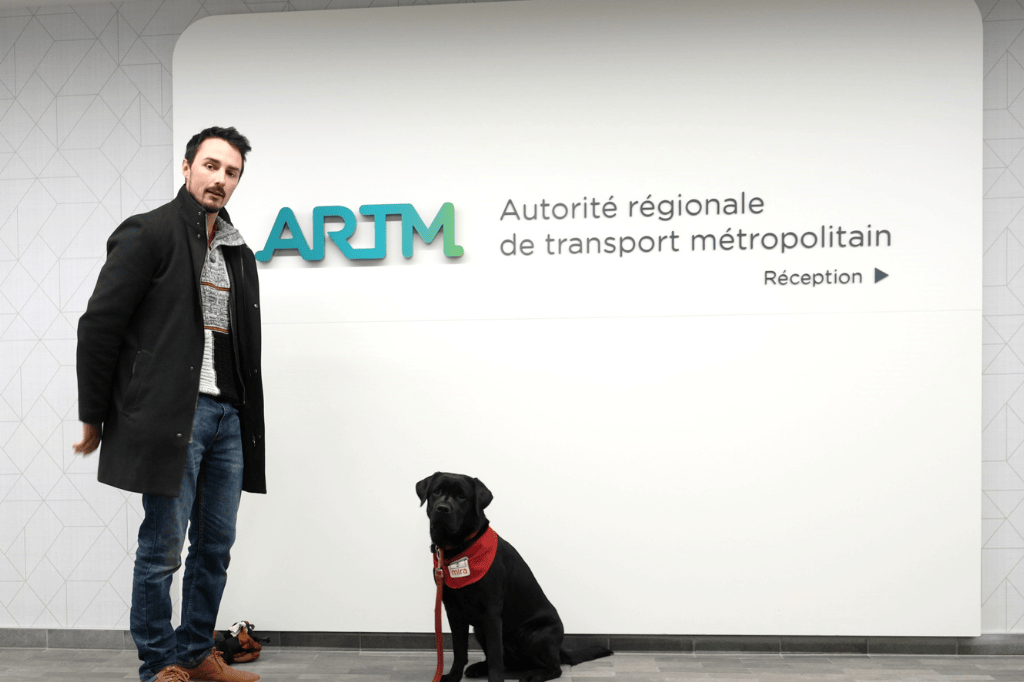Jérémy Gelb
Jérémy Gelb
Ph.D. in urban studies, 2022
Urban and spatial data analyst, Autorité régionale de transport métropolitain (ARTM)

“Cultivate an open mind, be curious and critical, explore different paths and don’t hesitate to take chances.”
After obtaining a professional degree in geomatics and the environment at the École nationale des sciences géographiques (ENSG-Géomatique) in France, Jérémy Gelb chose to pursue his graduate studies in Québec, initially focusing on a master’s degree in urban studies at UQAM’s École des sciences de la gestion. Geomatics, at the heart of his training, encompasses the use of information technologies for the acquisition, processing, and dissemination of geospatial data. It was during his academic career at UQAM, where he was already collaborating with INRS by working as a research assistant in Professor Philippe Apparicio’s laboratory and taking courses in quantitative methods, that his passion for urban studies was consolidated, motivating him to undertake a doctorate in this field.
His studies at INRS’ Centre Urbanisation Culture Société, directed by Professor Apparicio, was marked by stimulating scientific challenges. What he particularly appreciated during his studies were the writing of scientific articles, exchanges with other researchers and the presentation of papers, all of which were enriching experiences. At INRS, Jérémy has appreciated a deep culture encouraging student involvement in research, going beyond simple practical work. This approach to integrate students directly into research reflects INRS’s commitment to the academic development and in-depth training of its student members. “Investing in the creation of knowledge, contributing to the scientific literature by writing articles and confronting one's ideas to the critical gaze of other researchers,” are aspects that truly captivated him.
His thesis entitled “Cyclists’ exposure to air and noise pollution in urban environments. Empirical comparison of different cities around the world,” which research was carried out in the cities of Copenhagen, Paris, Lyon, Montréal, Toronto, Ho Chi Minh City, Delhi, and Mumbai, earned him the INRS CEO’s award of excellence, as well as the prestigious Governor General’s Academic gold medal in 2022. In recognition of his outstanding work, he was also awarded the Prix de la meilleure thèse by the INRS Foundation in the same year.
By the time he had completed his Ph.D., Jérémy had already collected an impressive total of 21 publications, in which he featured as first, second or third author, as well as participation in over fifteen conferences. Geomatics and human geography, two fields that are ubiquitous in universities, play an essential role in various fields such as criminology, transport, urban sprawl, population movements and so on. These disciplines share common methods of analysis, based on geographic information systems and spatial analysis.
Jérémy currently holds a position as Data science advisor at the Autorité régionale de transport métropolitain (ARTM), an organization whose mission is to plan, organize, develop, finance, and promote public transit services in the Greater Montreal area, with the aim of “offering a simple, integrated, fluid and efficient mobility experience.” As part of the Research and data valorization team, his role is to analyze various data relating to travel habits, the transportation offer, the socio-demographic characteristics of the population and, more generally, the territory of the Montréal region, to guide public transit planning. As such, it has already developed several indicators to quantify spatial accessibility to public transit, jobs and the level of social equity in their geographical distribution. This work remains rooted in research, as it is carried out in collaboration with a few researchers and is the subject of scientific publications.
This fundamental value of knowledge sharing, found in the academic world, plays a significant role in the projects carried out at ARTM. This practice benefits the whole community, and Jérémy is committed to this dynamic daily. He considers himself very fortunate to be involved in this process and feels that INRS has prepared him well for the position he occupies: “The Ph.D. has given me the time to develop this analytical and critical aspect, and it has given me the time to strengthen my skills in all aspects of quantitative and spatial data analysis, as well as programming.”
In conclusion, Jérémy offers this advice to current and future students: “Explore the possibility of landing a research assistant position by looking for a professor whose research project interests you and to which you could contribute. Even if your contribution seems modest at first, don’t hesitate to get involved in the field. Participating in the writing of articles and immersing yourself in scientific literature is a formative experience. This is undeniably the best way to get started in the field. What’s more, it will help you build up your CV. Don’t hesitate to approach professors, take an interest in their research projects, and seek to integrate yourself. These actions will enable you to acquire varied and valuable skills.”
[Interviewed in February 2024.]
